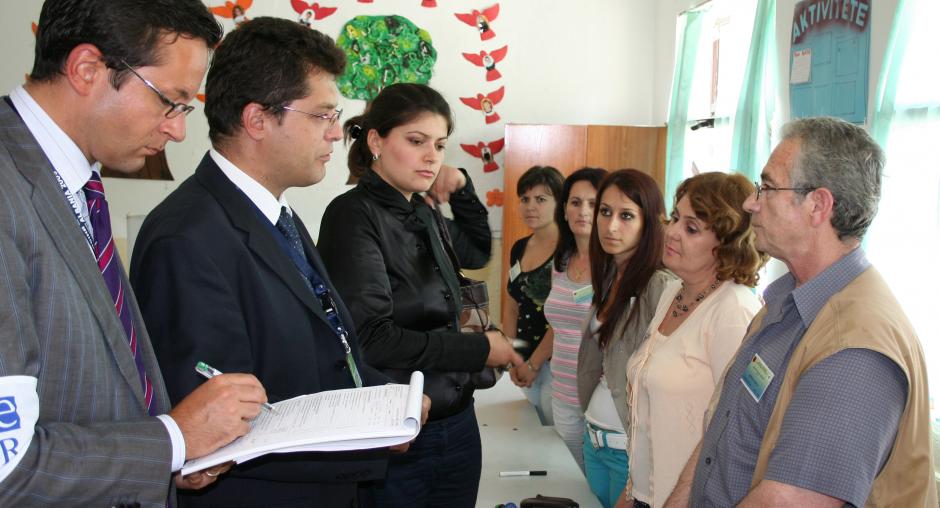Improvements in Albania's election process, but violations persist, observers say

TIRANA, 29 June 2009 - In a statement issued today, the International Election Observation Mission concluded that Albania's election process demonstrated improvements, but also noted that violations persist.
The observers said the elections marked tangible progress with regard to the introduction of new voter registration and identification procedures, and the adoption of an improved legal framework.
But the observers also noted that these improvements were overshadowed by the politicization of technical aspects of the process and violations observed during the campaign which undermined public confidence in the electoral process.
Election day was overall calm and peaceful and the atmosphere was improved. Observers assessed the voting process slightly more positively than in previous elections, but noted procedural violations related in particular to inking procedures and widespread family voting.
The mission said it was too early to make a definite assessment, as the vote count and tabulation of results have yet to be completed.
"The country has matured, it has made progress, and many of the fears we had only some months ago have not materialized. I'm certainly happy about the progress we saw, but there is also a considerable number of issues that need to be tackled, in particular the polarized political climate," said Wolfgang Grossruck, Vice-President of the OSCE Parliamentary Assembly and Special Co-ordinator of the OSCE short-term observer mission.
"These elections demonstrated that the Albanian people has the whole potential for building a democratic society alike that in other European countries. Now there is a huge responsibility of the authorities and main political stakeholders to work hard in order to establish confidence among the citizens for a democratic electoral process," said Corien Jonker, Head of the delegation of the Council of Europe's Parliamentary Assembly.
"Our report reveals positive but also some negative developments in the conduct of these elections. Progress has been achieved since the last parliamentary elections in 2005. However, greater efforts still need to be made by all political forces in order to meet demanding international standards," said Bruce George, Head of the delegation of the NATO Parliamentary Assembly.
"The new electoral code agreed to by both main political parties introduced a number of important improvements and safeguards, in particular with regard to voter registration and identification. It is unfortunate that the high level of distrust among parties, the use of official events for campaign purposes and allegations of pressure on voters did not increase public confidence in the election process," said Ambassador Audrey Glover, Head of the long-term election observation mission of the OSCE Office for Democratic Institutions and Human Rights (OSCE/ODIHR).
For further information contact:
Roberto Montella, OSCE PA, mobile: +43 699 10428681 or +355 69 4512432, roberto@oscepa.dk
Jens-Hagen Eschenbächer, OSCE/ODIHR, mobile: + 355 69 451 2426 or +48 603 683 122, jens.eschenbaecher@odihr.pl
Chemavon Chahbazian, PACE, mobile: +33 662 265489, chemavon.chahbazian@coe.int
Ruxandra Popa, NATO PA, mobile +32 477 310 620 (temporary) , rpopa@nato-pa.int
